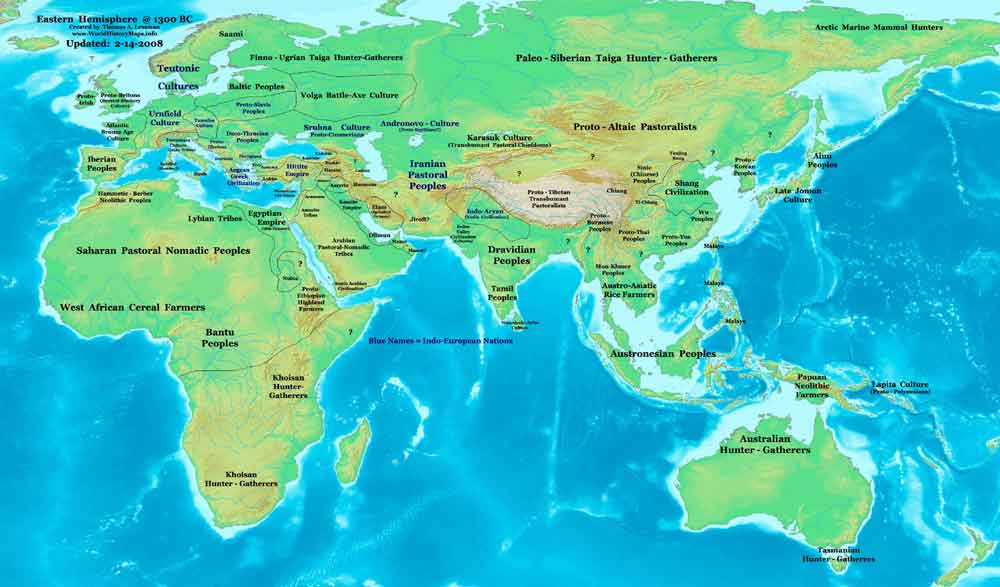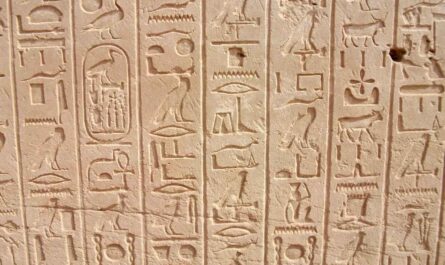Peering through the prism of history, it becomes evident that each empire was a brushstroke on the canvas of human progress. The multifaceted evolution of culture, shaped by the confluence of diverse civilizations, found expression in the grandeur of imperial reigns. Technological innovations, spurred by the competitive spirit of empire-building, became the heralds of new eras. Governance systems, both benevolent and despotic, bore witness to the experiments and adaptations that define the ebb and flow of political structures through time. In this article, I am going to talk about the list of greatest empires in history:
Greatest Empires in history
| Empire | Land area (million km2) | Year |
|---|---|---|
| Upper and Lower Egypt | 0.1 | 3000 BC |
| Old Kingdom of Egypt | 0.25 | 2850 BC |
| 0.4 | 2400 BC | |
| Akkadian Empire | 0.65 | 2300 BC |
| 0.8 | 2250 BC | |
| New Kingdom of Egypt | 1.0 | 1450 BC |
| Shang dynasty | 1.25 | 1122 BC |
| Assyria | 1.4 | 670 BC |
| Median Empire | 2.8 | 585 BC |
| Achaemenid Empire | 3.6 | 539 BC |
| 5.5 | 500 BC | |
| Xiongnu Empire | 9.0 | 176 BC |
| Umayyad Caliphate | 11.1 | 720 |
| Mongol Empire | 13.5 | 1227 |
| 24.0 | 1309 | |
| British Empire | 24.5 | 1880 |
| 35.5 | 1920 |
Timeline of the largest empires at the time
| Empire | Land area during the time as the largest empire (million km2) | Year |
|---|---|---|
| Upper Egypt | 0.1 | 3000 BC |
| Old Kingdom of Egypt | 0.25–0.4 | 2800 BC–2400 BC |
| Akkadian Empire | 0.2–0.6 | 2300 BC–2200 BC |
| Indus Valley Civilisation | 0.15 | 2100 BC |
| Middle Kingdom of Egypt | 0.2–0.5 | 2000 BC–1800 BC |
| Xia dynasty | 0.4 | 1700 BC |
| Hyksos | 0.65 | 1600 BC |
| New Kingdom of Egypt | 0.65–1.0 | 1500 BC–1300 BC |
| Shang dynasty | 0.9–1.1 | 1250 BC–1150 BC |
| New Kingdom of Egypt | 0.5–0.6 | 1100 BC–1050 BC |
| Zhou dynasty | 0.35–0.45 | 1000 BC–900 BC |
| Assyria | 0.4–1.4 | 850 BC–650 BC |
| Median Empire | 3.0 | 600 BC |
| Achaemenid Empire | 2.5–5.5 | 550 BC–350 BC |
| Macedonian Empire | 5.2 | 323 BC |
| Seleucid Empire | 4.0 | 300 BC |
| Maurya Empire | 3.5 | 250 BC |
| Han dynasty | 2.5 | 200 BC |
| Xiongnu Empire | 5.7 | 150 BC |
| Han dynasty | 4.2–6.5 | 100 BC–200 |
| Roman Empire | 4.4 | 250–350 |
| Sasanian Empire | 3.5 | 400 |
| Hunnic Empire | 4.0 | 450[26] |
| Sasanian Empire | 3.5 | 500 |
| Göktürk Khaganate | 3.0–5.2 | 550–600 |
| Rashidun Caliphate | 5.2 | 650 |
| Umayyad Caliphate | 9.0–11.0 | 700–750 |
| Abbasid Caliphate | 8.3–11.0 | 750–800 |
| Tibetan Empire | 2.5–4.7 | 850–950 |
| Song dynasty | 3.0 | 1000 |
| Seljuk Empire | 3.0–4.0 | 1050–1100 |
| Tibetan Empire | 2.5 | 1150 |
| Jin dynasty (1115–1234) | 2.3 | 1200 |
| Mongol Empire | 18.0–24.0 | 1250–1300 |
| Yuan dynasty | 11.0 | 1350 |
| Timurid Empire | 4.0 | 1400 |
| Ming dynasty | 4.7–6.5 | 1450–1500 |
| Ottoman Empire | 4.3 | 1550 |
| Tsardom of Russia | 6.0–12.0 | 1600–1700 |
| Russian Empire | 14.0–17.0 | 1750–1800 |
| British Empire | 23.0–34.0 | 1850–1925 |
| Soviet Union | 22.5 | 1950–1975 |
Source: https://en.wikipedia.org/wiki/List_of_largest_empires
More Interesting Articles
- 25 California Drought Facts – Causes | Effects | Solution
- 38 Interesting Facts About Australian Flag
- 25 Interesting Facts About The Roman Empire
- 100 Fun Facts About France One Should Know
- 15 Facts About Letchworth State Park, NY
- 40 Amazing Walt Disney World Facts
- 25 Interesting Facts About Glastonbury Festival
- 10 Interesting Facts About Antalya Turkey
- 70 Interesting Facts about the Eiffel Tower
- 26 Facts About Tokyo Meiji Jingu Temple
- 20 Fun Facts about Yosemite National Park, California
- 30 Interesting Facts About Dublin, Ireland
- 57 Must-do Things in Budapest for Travelers
- 13 Interesting Beijing Facts Everyone Must Know
- 16 Facts – Harbin International Ice and Snow Sculpture Festival
- 20 Surprising Facts About The German Flag
- 25 Surprising Facts About Florida Flag
- 17 Interesting Netherlands Facts to Surprise All
- 100 Tallest Completed Buildings in the World
- 15 Interesting Louvre Museum Facts to Know




